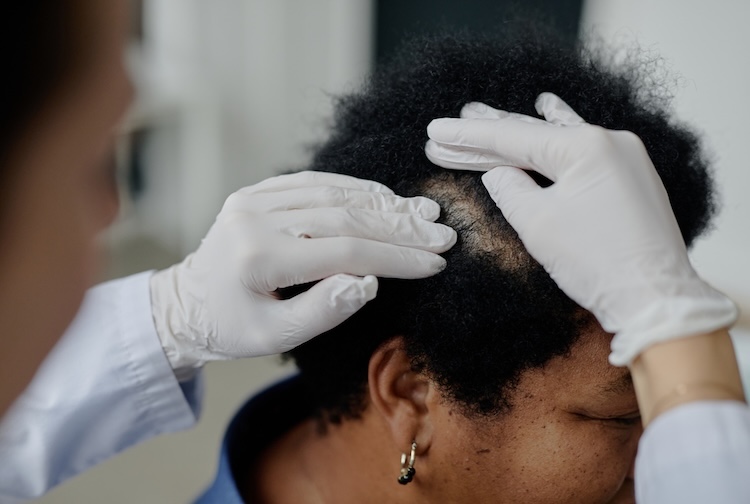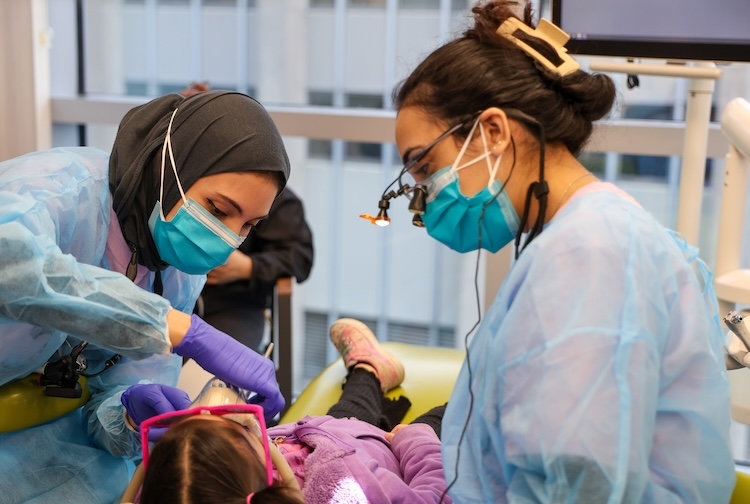How do romantic partners influence our relationships with alcohol?
Research from VCU and Rutgers University reveals new insights into how the people we love affect our genetic risk for unhealthy drinking.
May 29, 2025 There are several factors that can shape one’s risk for unhealthy drinking, including family medical history, exposure to traumatic events, and social and cultural norms. (Getty Images)
There are several factors that can shape one’s risk for unhealthy drinking, including family medical history, exposure to traumatic events, and social and cultural norms. (Getty Images)
By Olivia Trani
Romantic partners can have a big impact on the course of a person’s life and well-being, including physical, emotional, and mental health. They can also impact an individual’s relationship with drinking.
A study led by Virginia Commonwealth University and Rutgers University reveals new insights into how romantic partners can influence a person’s genetic predisposition to unhealthy alcohol use. The research team specifically found that an individual’s genetic risk for binge drinking can be affected by their long-term partner’s substance use habits, personality traits and mental health. The findings, published in Clinical Psychological Science, could help reshape strategies for couples therapy and couple-based alcohol interventions.
“This research sheds new light on the complicated and unforeseen ways that spouses and long-term partners can shape our health and well-being,” said Mallory Stephenson, Ph.D., a postdoctoral fellow at the Virginia Institute for Psychiatric and Behavioral Genetics at the VCU School of Medicine and one of the lead authors of the new study.
VCU Health News spoke with Stephenson to learn more about how the people we love impact our risk for unhealthy drinking.
What factors can influence our risk for unhealthy alcohol use? How much of an impact do these factors actually have?
There are several factors that can play a role in shaping a person’s risk for unhealthy drinking. This includes the genes you inherit from your family, exposure to traumatic events, depression and other mental health problems, as well as social and cultural norms. However, the impact these conditions have on a person can change depending on their environment.
For example, if a person has a high genetic risk for alcohol use disorder and experiences a traumatic event, such as the death of a close relative or exposure to a natural disaster, their biology could play more of a role in whether or not they develop a drinking problem in response to that stressor. However, if that person isn’t experiencing anything stressful in their life, their genetic risk may not have as much influence on their drinking behavior.
Previous VCU-led research has shown that people with a genetic predisposition to risky alcohol behavior are less likely to drink frequently, become intoxicated often, or suffer from alcohol dependence symptoms if they are in a romantic relationship. In this new study, we wanted to better understand whether any particular characteristics exhibited by a romantic partner can impact a person’s genetic risk for drinking.
How did you and your colleagues conduct this research?
We examined anonymized data from FinnTwin16, which is a long-term study of twins identified from Finland’s Central Population Registry. We specifically looked at Finnish twins in their 30s who were in long-term relationships and had a history of alcohol use. We then analyzed survey responses from 1,620 twins and their romantic partners, including responses on their drinking and smoking habits, personality characteristics and mental health status.
Twin studies are a really useful tool to disentangle the genetic and environmental influences on our lives. By studying fraternal twins, who share 50% their genetic makeup, and identical twins, who share 100% of their genetic makeup, we can gain insights into how genetic and environmental factors interact with each other and play a role in developing certain behaviors.
What did you discover about the effect romantic partners have on drinking habits?
One of our findings was consistent with previous studies: a person in early midlife (between the ages of 30 to 40) was more likely to consume alcohol and engage in binge drinking if their romantic partner also frequently drank alcohol or smoked cigarettes. When specifically looking at identical twin pairs, we found that romantic partners had a greater influence on the drinking behavior of male twins compared with female twins.
We saw that the genetic risk for binge drinking had a greater effect in people whose romantic partners smoked cigarettes more frequently, were less conscientious, more extraverted, or reported higher neuroticism (negative emotions like anxiety, anger and depression) or psychological distress.
Another result wasn’t one we expected – genetic risks for binge drinking had less of an effect on people whose partners drank alcohol more frequently. We think this could mean that the drinking behavior of romantic partners could have a larger effect on a person’s environmental influences rather than their genetic influences.
You can think of these environmental and genetic influences like a pie chart. If the impact of one of these factors makes up a smaller piece of the pie, then the impact of another factor makes up a larger piece.
What does this research tell us about relationships, and how could these findings help health care professionals prevent and treat unhealthy alcohol use?
This study underscores the important but complex ways in which romantic partners affect a person’s health. From a clinical perspective, the findings could inform strategies for couples therapy and couple-based alcohol interventions, which are typically designed to focus on relationship dynamics rather than personal characteristics.
Rather than just focusing on how well you get along with your partner, it also may be helpful to assess how their traits and behaviors can shape your own health and well-being. Even if you have a good relationship, this research shows that your partner’s substance use, personality, and mental health can still have an impact on you.
Read more about the research providing new insights into how the people we love affect our health




